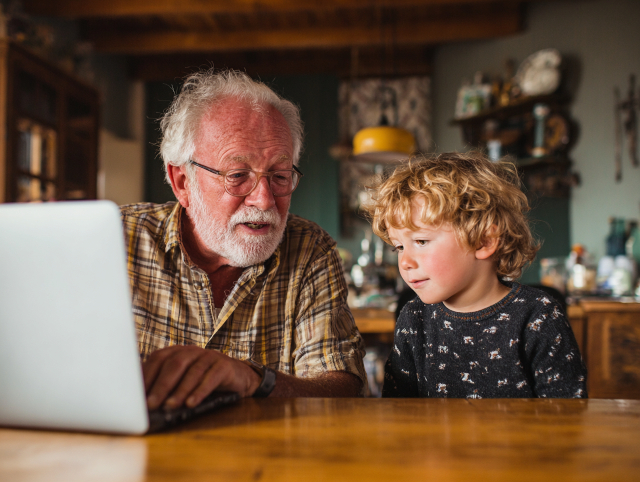A new study from Rutgers University has found that grandparents play a far more important role in managing children’s media use than previously recognised. Conducted by Dafna Lemish, a Distinguished Professor of Journalism and Media Studies at Rutgers, along with Galit Nimrod and Nelly Elias from Ben-Gurion University of the Negev, the research explores how grandparents act as mediators in their grandchildren’s digital lives. Published in the Journal of Aging Studies, the study introduces the idea of “secondary mediation,” a process where grandparents use strategies and rules created by parents to guide children’s media habits. The researchers argue that traditional mediation theories should be expanded to include this shared, intergenerational approach to caregiving.
The study highlights that grandparents often follow parental guidelines when supervising television, online content, and games, effectively reinforcing family values around media use. However, this cooperation depends significantly on the relationship between the parents and grandparents, as well as the grandparents’ own familiarity with technology. The authors found that this collaboration strengthens intergenerational bonds, turning media supervision into a shared effort rather than a source of conflict. It also demonstrates that grandparents are not just passive observers in childcare but active partners who help maintain consistency in children’s digital routines.
Professor Lemish explained that much of the research on children’s media consumption has focused mainly on parents, overlooking grandparents who are frequently involved in caregiving. She wanted to know whether grandparents used the same strategies as parents—restricting screen time, discussing content, and co-viewing—or were more relaxed, perhaps “spoiling” their grandchildren. As both a scholar and a grandmother, Lemish was personally drawn to understanding these dynamics. Her findings reveal that grandparents do engage in media mediation, though often in more informal and emotionally supportive ways, reflecting their unique role in family life.
The research found that grandparents can have a positive influence by reducing children’s exposure to harmful content and encouraging media that supports learning and creativity. Lemish noted that grandparents can help counteract adverse effects such as exposure to violence, bullying, or stereotypes, while promoting enjoyment and intellectual growth. This balance of caution and encouragement allows children to benefit from the educational and social advantages of media without overindulgence. Grandparents’ wisdom and experience, the study suggests, can help young children navigate digital spaces more safely and thoughtfully.
A key recommendation from the researchers is that parents and grandparents should communicate openly about media rules and expectations. When caregivers share similar values and guidelines, children are less likely to experience confusion or tension. Lemish advised families to discuss their perspectives on media, agree on limits for screen time, and decide together when exceptions might be acceptable. This cooperative approach ensures that children receive consistent messages about using media responsibly while still allowing for flexibility and enjoyment.
To reach their conclusions, the researchers surveyed 267 pairs of grandmothers and mothers of children aged four to eight. They discovered that grandmothers were more confident in mediating noninteractive media, such as films or television, than interactive media, such as games. Factors such as education, time spent caregiving, and comfort with technology influenced how they guided their grandchildren. Overall, the study provides some of the first detailed insights into how grandparents shape children’s media habits. It portrays them as vital partners in helping families find balance in an age where screens are a constant presence in everyday life.
More information: Galit Nimrod et al, Secondary mediation of children’s media use: An exploration of mothers-grandmothers’ mediation dynamic, Journal of Aging Studies. DOI: 10.1016/j.jaging.2025.101357
Journal information: Journal of Aging Studies Provided by Rutgers University








